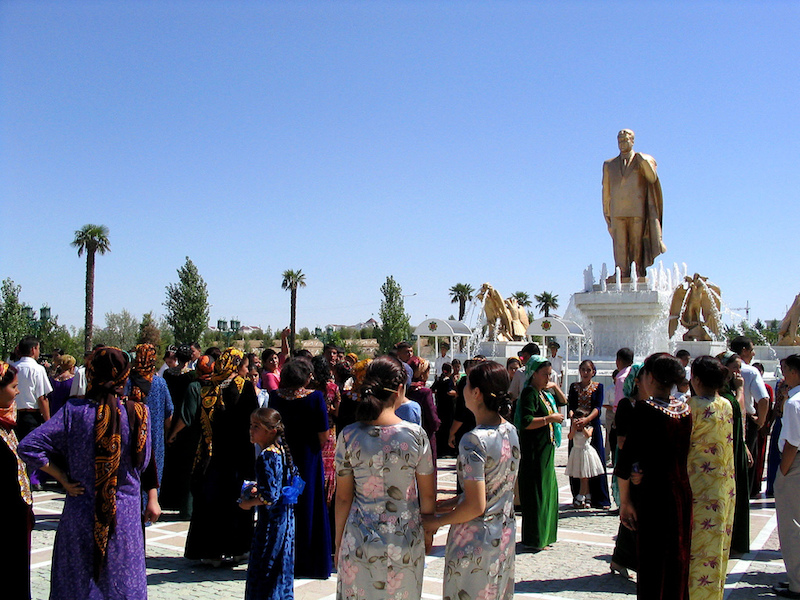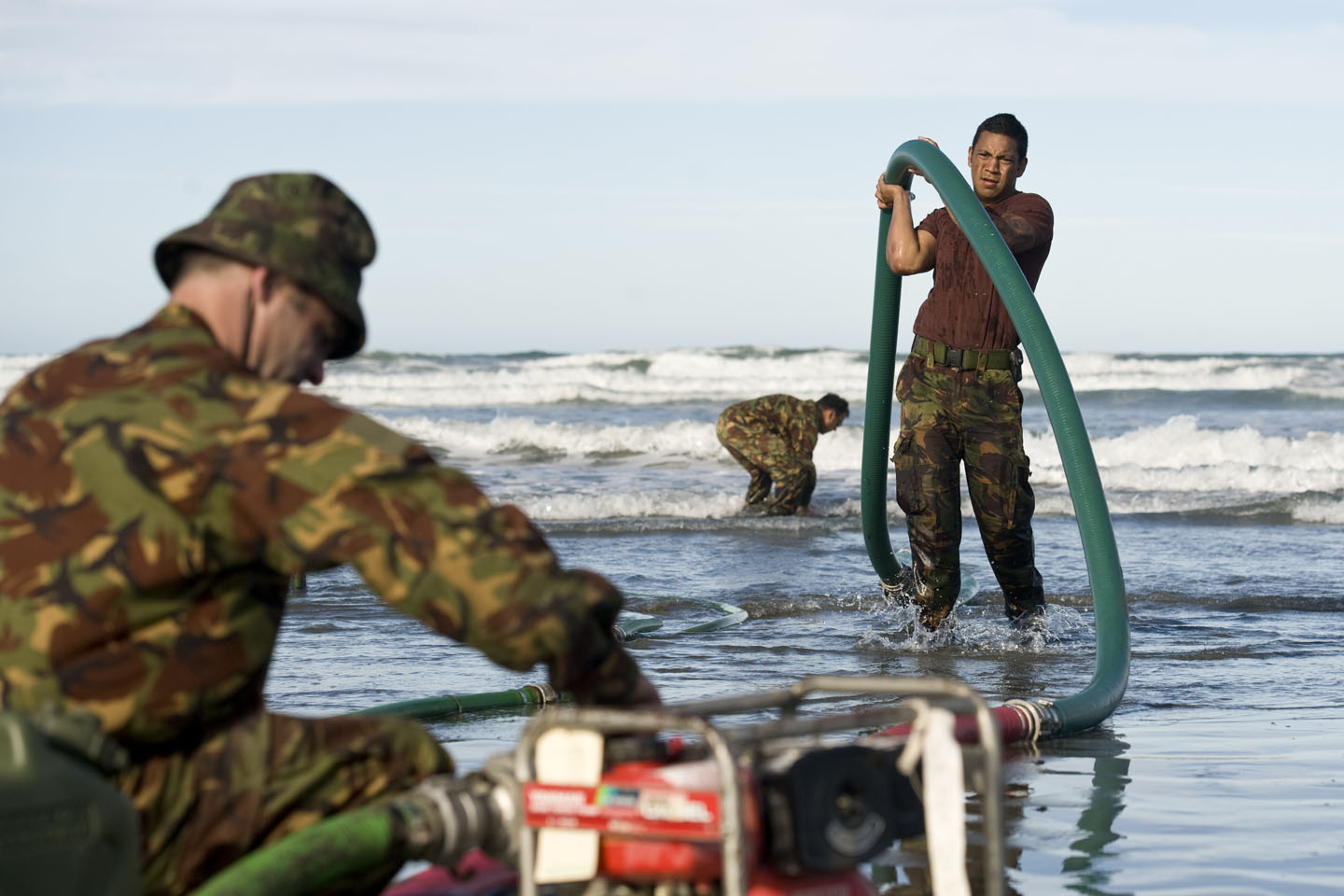If one follows the old Roman adage that it only takes “bread and circuses” to maintain a regime, then current Turkmen President Budymukhamedov is certainly giving his people the latter. In the past year alone, Turkmenistan has hosted such dazzling and distracting events as the Asian Indoor and Martial Games, a Guinness-World record breaking bicycle ride, and the unveiling of flamboyant new statues. But whether the President can provide the bread is less certain.
Turkmenistan, a country with 5 million people and the world’s fourth-largest natural gas reserve, is rarely discussed outside of Central Asia. It is unknown, isolated, and autocratic.Indeed, Human Rights Watch calls it “one of the most repressive states in the world”, and it is currently on the brink of collapse.
A major destabilizing factor relates to the current economic downturn. Turkmenistan’s economy is almost entirely reliant on gas exports, but with falling global gas prices and a Russian import ban, Turkmenistan’s only source of revenue is quickly losing value. Currently, the only major importer of Turkmen gas is China, who paid for a new pipeline to Beijing, which is never at full capacity.
Turkmenistan’s unemployment rate is estimated to be between 50% and 60%. Even those who are employed, especially with the government, are often not being paid. To make matters worse, the country is currently experiencing extremely high levels of inflation, most recently measured at 357%. While not high enough to be technically classified as hyperinflation, it is the second-highest inflation in the world at the moment, next to Venezuela. It is also Turkmenistan’s highest recorded inflation rate since the crises of the early 1990s.
Thus many people do not have jobs, many of those who do are not being paid, and even those who are being paid are watching their real wages drop dramatically as inflated prices soar. The unemployment problem is set to continue, as Turkmenistan has experienced huge demographic growth, leading to a current youth bulge. These young people are searching for work in a country that already lacks employment opportunities. Frustrated young people with no job prospects and a lot of time on their hands often leads to unrest. One path previously available, that of finding work abroad, is no longer a practicable possibility for Turkmens. The government appears to be pressuring its citizens abroad to return to the country, while banning many from leaving in the first place.
Added to this extreme economic crisis is a growing food crisis that began in December. Food shortages have led to government rationing of key goods such as sugar and flour. People have to wait in long queues for food, leading to frustration and even riots. There are reports of officials in rural areas threatening to raid houses in order to seize “surplus” grain. In some regions, bread prices have risen by 50%. This state of affairs has led to popular gatherings outside official buildings, with people asking the government to ease the food restrictions.
In addition to its economic woes, Turkmenistan shares its southern border with Afghanistan. The situation in the frontier region is very tense, prompting fears of spillover violence. Indeed, the area is so dangerous that countries such as Canada have travel advisories in place urging citizens to “avoid all travel”. This proximity to extremism also raises fears of local jihadism, as Islamic radicalism in Turkmenistan rises.
In order to maintain control of the country, authorities use a range of internationally-condemned tactics which are not likely to garner support for the precarious regime, either within or outside of the country. The Turkmen government is accused of several severe human rights violations, from forced child labour to enforced disappearances in prisons.
Finally, there appears to be a power struggle in the upper echelons of the Turkmen government, as the National Security Minister was recently fired, and many other positions reshuffled. This is key, as ruling-party fracturing is a side effect of an authoritarian regime in its death throes.
Despite Berdymukhamedov’s facade of popularity (he won the last election with 97.7% of the vote) and his iron grip on the country, it is doubtful that he will be able to cling to power for much longer, as catastrophic economic collapse and widespread hunger loom ever closer.
Turkmenistan Wedding, by Benpaarmann via Wikimedia Commons. Licensed under CC BY 2.0.
Disclaimer: Any views or opinions expressed in articles are solely those of the
authors and do not necessarily represent the views of the NATO Association of
Canada.




